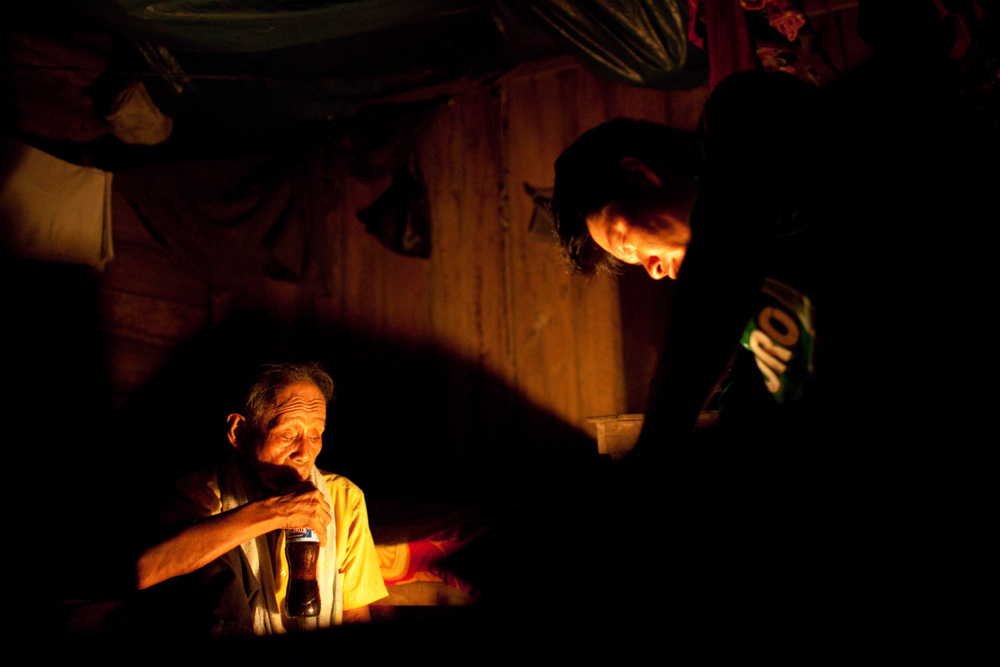“Ayahuasca-Assisted Therapy for Addiction: Results from a Preliminary Observational Study in Canada”
Gerald Thomas, Philippe Lucas, N. Rielle Capler, Kenneth W. Tupper and Gina Martin
( Centre for Addictions Research of British Columbia, University of Victoria, Canada, Interdisciplinary Graduate Studies Program, University of British Columbia, Canada, School of Population and Public Health, University of British Columbia, Canada )
…
“Wspierana ayahuaską terapia uzależnień : rezultaty obserwacyjnego badania w Kanadzie”
Gerald Thomas, Philippe Lucas, N. Rielle Capler, Kenneth W. Tupper and Gina Martin
( Centrum Badań Uzależnień Brytyjskiej Kolumbii, Uniwersytet Wiktorii, Kanada, Intersdyscyplinarny Program Studiów Uniwersytetu Brytyjskiej Kolumbii, Kanada, Szkoła Populacji i Zdrowia Publicznego, Uniwersytet Brytyjskiej Kolumbii, Kanada )
source // źródło :
Current Drug Abuse Reviews 2013, 6, 000-000 ( http://www.maps.org/research-archive/ayahuasca/Thomas_et_al_CDAR.pdf )
Abstract:
Introduction: This paper reports results from a preliminary observational study of ayahuasca-assisted treatment
for problematic substance use and stress delivered in a rural First Nations community in British Columbia, Canada.
Methods:
The “Working with Addiction and Stress” retreats combined four days of group counselling with two expert-led
ayahuasca ceremonies. This study collected pre-treatment and six months follow-up data from 12 participants on several
psychological and behavioral factors related to problematic substance use, and qualitative data assessing the personal
experiences of the participants six months after the retreat.
Findings:
Statistically significant (p < 0.05) improvements were demonstrated for scales assessing hopefulness,
empowerment, mindfulness, and quality of life meaning and outlook subscales. Self-reported alcohol, tobacco and cocaine
use declined, although cannabis and opiate use did not; reported reductions in problematic cocaine use were statistically
significant. All study participants reported positive and lasting changes from participating in the retreats.
Conclusions:
This form of ayahuasca-assisted therapy appears to be associated with statistically significant improvements
in several factors related to problematic substance use among a rural aboriginal population. These findings suggest
participants may have experienced positive psychological and behavioral changes in res
ponse to this therapeutic approach,
and that more rigorous research of ayahuasca-assisted therapy for problematic substance use is warranted.
…
Abstrakt
Wstęp :
Ta publikacja jest rezultatem wstępnego studium obserwacyjnego terapii prowadzonej przy pomocy ayahuaski, w problemach nadużywania substancji i wynikających ze stresu w wiejskich rdzennych społecznościach w Brytyjskiej Kolumbii w Kanadzie.
Metodyka :
Programy “Praca z uzależnieniem i stresem” zawierały cztery dni grupowej terapii, w tym dwie prowadzone przez ekspertów [ z plemienia Shipibo w Peru ] ceremonie ayahuaski. Niniejsze badanie zebrało dane sprzed terapii jak i w ciągu sześciomiesięcznego okresu kontrolnego po terapii od 12 uczestników, dotyczące kilkunastu psychologicznych i behawioralnych czynników związanych z problematycznym nadużywaniem substancji, i dane ilościowe oceniające osobiste doświadczenia uczestników w ciągu sześciu miesięcy po programie.
Wyniki:
Statystycznie znacząca (p < 0.05 ) poprawa została zademonstrowana na skalach oceniających poczucie nadziei, upodmiotowania, uważności, i jakości znaczenia życia i perspektyw. Deklarowane przez użytkowników użycie alkoholu, tytoniu, kokainy obniżyło się, chociaż użycie konopii i opiatów nie, raportowane obniżenia stosowania kokainy były statystycznie znaczące. Wszyscy uczestnicy deklarowali pozytywne i trwałe zmiany po swoim udziale w programie.
Wnioski :
Ta forma wspieranej ayahuaską terapii wydaje się łączyć ze statystycznie znaczącymi poprawami co do kilkunastu czynników powiązanych z używaniem problematycznych substancji w wiejskich społecznościach rdzennej ludności. Te wyniki sugerują iż uczestnicy mogli doświadczyć pozytywnych psychologicznych i behawioralnych zmian w reakcji na to terapeutyczne podejście, i że bardziej rygorystyczne badanie wspieranej ayahuaską terapii nadużywania problematycznych substancji byłoby uzasadnione.

